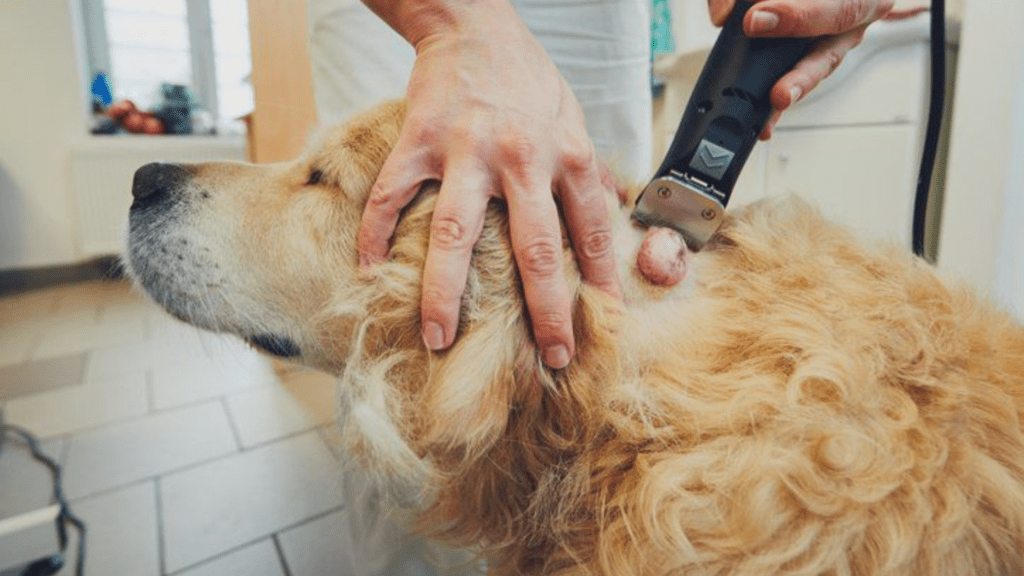There are some signs that a dog might display if they are experiencing pain or potentially have cancer. It’s important to note that these signs are not definitive evidence of cancer and other medical conditions could cause similar symptoms. If you suspect your dog is in pain or may have cancer, it’s best to consult with a veterinarian for a proper diagnosis. Here are some important points to watch for:
Lethargy Sign For Dog Pain And Cancer:
If your dog becomes unusually inactive, lacks energy, or shows a significant decrease in their usual activity level, it could be a sign of pain or illness.
Loss Of Appetite:
Dogs with pain or cancer may exhibit a decreased appetite or completely refuse to eat. Weight loss can occur as a result.
Difficulty Or Changes In Movement:
Dogs in pain may have difficulty moving, show lameness, or display a reluctance to jump, climb stairs, or engage in normal activities. They may also limp or have a noticeable change in their gait.
Changes In Behavior:
Dogs experiencing pain may become more irritable, aggressive, or withdrawn. They may also exhibit restlessness, pacing, or difficulty settling down.
Vocalization:
If your dog starts vocalizing more than usual, whining, whimpering, or yelping without an apparent cause, it could be a sign of pain.
Changes In Bathroom Habits Sign For Dog Pain And Cancer:
Dogs with cancer or pain might have difficulty or show reluctance in urinating or defecating. They may have accidents in the house or strain during elimination.
Swellings Or Lumps:
While not all lumps or swellings indicate cancer, it’s essential to have any abnormal growths checked by a veterinarian.
Changes In Breathing:
Cancer can affect the respiratory system, causing difficulty breathing, coughing, wheezing, or other abnormal breathing patterns.
Changes In Appearance:
Dogs with cancer may have a dull coat, dry skin, or exhibit changes in skin color or texture. They may also have open sores that don’t heal.
Bleeding Or Discharge Signs For Dog Pain And Cancer:
Unexplained bleeding from any part of the body or abnormal discharge from the nose, mouth, ears or genitals should be evaluated by a veterinarian.
Changes In Behavior Or Personality Of Dog Pain And Cancer:
Dogs with cancer may display changes in their behavior or personality, such as increased irritability, decreased interest in their surroundings or a generally subdued demeanor.
Conclusion:
In conclusion, dogs can experience pain, and cancer is one possible cause of pain in dogs. It’s important to be aware of the signs and symptoms of pain and cancer in dogs, such as changes in behavior, appetite, movement, and appearance. However, these signs are not exclusive to cancer and could indicate other medical conditions as well. If you suspect your dog is in pain or may have cancer, it’s crucial to consult with a veterinarian for a proper diagnosis and appropriate treatment options. Veterinary professionals are best equipped to evaluate your dog’s condition and provide the necessary care to ensure their well-being.
FAQ’s
Can Dogs Experience Pain?
Yes, dogs can experience pain. They have a nervous system that allows them to perceive and feel pain, just like humans do.
Can Dogs Experience Pain?
Yes, cancer can cause pain in dogs. Tumors can grow and press against tissues, organs, or nerves, resulting in discomfort or pain.
Are Certain Dog Breeds More Prone To Cancer?
Some dog breeds are genetically predisposed to certain types of cancer. For example, larger breeds may have a higher risk of bone cancer (osteosarcoma), while certain small breeds are more prone to specific types of cancer, such as lymphoma. However, cancer can affect dogs of any breed or mix.
What Should I Do If I Suspect My Dog Has Cancer?
If you suspect your dog has cancer or is in pain, it’s important to consult with a veterinarian. They can perform a thorough examination, conduct diagnostic tests if necessary, and provide appropriate treatment options or referrals to veterinary specialists.
Can Pain Medication Help Relieve My Dog’s Pain From Cancer?
Pain management is an essential part of caring for a dog with cancer. Your veterinarian can prescribe appropriate pain medication or recommend palliative care options to help alleviate your dog’s pain and improve their quality of life.



